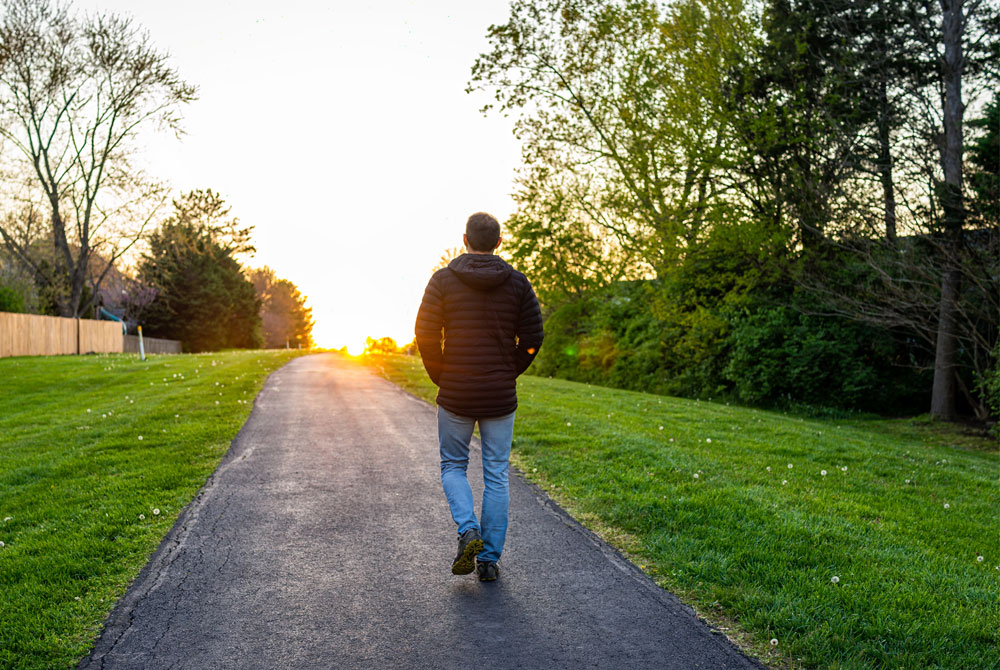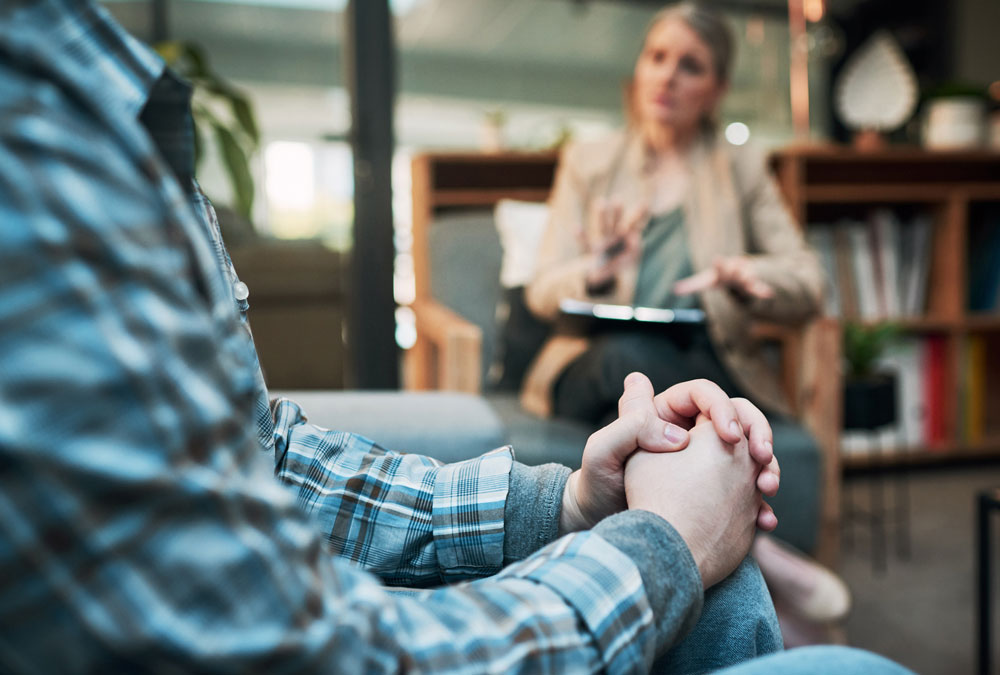Avoiding relapse triggers is often the best option for individuals in recovery, but sometimes relapse triggers can arise when you are least expecting them. For the sake of your health and recovery, it is important to learn how to manage relapse triggers, so that you can stay committed to your recovery and continue to improve the course of your life.
The Truth Behind Relapse
If you are a person in recovery, it is important to be gentle with yourself. Even if you have stayed sober for a long period of time, relapse is still a very common concern. Between 40% and 60% of people relapse at least once before staying sober, making relapse a part of recovery for many people.
Some common emotions you might experience when you relapse include both guilt and shame. You may feel like you are a disappointment, your challenge is impossible, or you are letting down all of your loved ones, but you must remember that recovery is a journey and does not occur overnight. As you are recovering, you may discover that the world seems different without drugs or alcohol clouding your perception.
Everything may seem new and scary. The world may look harder and more difficult to navigate. These are all normal experiences for people in recovery. Be easy on yourself when life gets difficult, and remember that every day on your path to recovery is a battle won.
Common Signs of Relapse
While everyone is different, there are three general stages of relapse.
If you notice any of these stages, it is important to seek help straight away.
Emotional Relapse
As the first step to relapse, emotional relapse can occur when your anxiety or stress levels begin to rise. At this point, you may not actually be thinking about returning to using, but your health and habits may begin to deteriorate. You may not be able to sleep well, or you could experience a change in appetite. You may become increasingly overwhelmed with simple tasks, or you might begin to self-isolate, separating yourself from support systems such as friends, family, or self-help groups.
Mental Relapse
Thoughts of using your chosen substance may begin to float back into your mind, including memories of “the good old days.” These may seem like easier times of your life, and you may start to fantasize about returning to them. You may begin putting yourself in risky situations, such as hanging out with friends who use. You may rationalize that maybe just one more time or using small amounts will be okay.
Physical Relapse
This is the point where you return to using. As the final stage of relapse, it is obviously the easiest to recognize. However, full relapse may be avoided if you become attuned to the earlier stages.
How to Avoid Relapse

As you deal with these new life obstacles, try to remind yourself that you are on a journey. Like with any journey, there will be challenges, but you can face them with the right mindset and the proper determination. It takes time to learn how to be sober and to readjust to the life around you.
Oftentimes, recovery equates to rebuilding your life and establishing a new normal. This is extremely difficult and takes time to rebuild. However, by learning techniques to avoid relapse and talking to a trusted therapist, you can learn how recovery is possible and can be accomplished with the right mindset and recovery plan.
Some of the most effective ways to avoid relapse involve learning how relapse occurs and what to do if it happens to you.
This can be done by:
- Learning how to identify your relapse triggers and how to manage them.
- Recognizing your common signs of relapse, such as how you begin to feel before you relapse, what emotions are running through your head, and what actions you are taking that deviate from your norm.
- Always remain hopeful and patient with yourself even if you relapse.
- Having a plan if relapse does occur, including someone you can call like a therapist or sponsor, a rehabilitation center you can go to, or meetings in your area that you could attend.
What Are Relapse Triggers?
Your days using your chosen substance filled your mind with memories. These memories may consist of certain songs you used to play while reaching for a drink or taking a drug, friends you often used with, certain places that may remind you of a time when you were under the influence, or any other significant memory that reminds you of those days. As mentioned, leading up to relapse, these memories often seem much more pleasant than they actually were.
Since relapse triggers can be so varied, it can feel impossible to avoid them at all times. You may be strolling through the aisles of your favorite store and hear a song that triggers a memory of when you were drinking. In these moments, you may feel quite defeated, like there is no way to recover when the past is all around you. But, it is important to never give up hope even during rough days and always remember a brighter future awaits you.
Therefore, to fully heal, it is important to learn how to manage relapse triggers in your day-to-day life. That way, you can walk freely about the world without fear of being smacked in the face with memories of a past you may want to completely forget.
How to Identify Substance Abuse Triggers

Before learning ways to manage relapse triggers, it is important to learn what your unique triggers are. Relapse triggers can be either external or internal and often coincide with strong physical or mental sensations that make you think intensely about using. Anything can be a relapse trigger, from a person, a TV show, something you hear at the grocery store, or an experience you have at the park.
To identify a relapse trigger, begin paying attention to how your body reacts to your environment. If you suddenly experience a strong urge to return to substance use, think about what happened just before this urge came on. What stimuli around or inside of you could have triggered this response? Maybe it was the face of an old bartender at your favorite bar or passing by a store that had paraphernalia in the window. The sooner you begin to identify these triggers, the closer you will be to learning how to cope with and navigate these feelings.
Additionally, when you do begin to think about using, know that these sensations are normal no matter how far into your recovery you are. Go easy on yourself and never punish yourself for having these feelings. Instead, try writing down your thoughts or speaking to a mentor, therapist, or trustworthy friend or family member about these feelings.
Common Internal Triggers
If you are experiencing internal triggers, they may manifest in your feelings. For example, you may be at your job and begin to realize how much work you still have left to finish before the end of the day. This pressure may begin to make you feel stressed or anxious. As this stress or anxiety intensifies, you may begin to think about how having a drink would make these emotions go away. However, what these emotions are ultimately doing is triggering you to use drugs or alcohol again.
Feelings such as stress, guilt, shame, anxiety, depression, regret, and grief can all be internal triggers. These emotions often act as triggers because they are unpleasant and often hard to deal with, causing you to think about using. It is important to remember that substances will not make these emotions go away. They will merely dull the feeling, making you feel even worse later.
Common External Triggers
Unlike internal triggers, external triggers are not merely inside you but all around you. They can be any external factor that reminds you of your chosen substance. It can be almost impossible to detach yourself from every external factor around you, but the more you can remove yourself from, the less likely you are to experience as much desire to use again.
Some of the most common external triggers include:
- Places you frequented before recovery – This could be a bar, a friend’s house, an old neighborhood, or any other place you have memories of using, so it is best to avoid old locations where you have used substances if possible. If this old place is unavoidable, like your home, try redecorating so that you do not have to stare at the same walls and decorations you were looking at before recovery.
- Old friends – Even if your old friend or drinking buddy is now also sober they can still trigger you (and vice versa) by reminding you of old times. Although it may be difficult for you to let go of these friends, it is often the best way to avoid being triggered by them. You may want to try deleting their numbers or unfriending them on social media so that you will not be tempted to contact them when you are having a bad day.
- Seeing paraphernalia – or other objects that remind you of your addiction. Getting triggered to use can often be as simple as watching a person sip a beer at the beach or walking past the medicine cabinet at a friend’s house. Any object that may remind you of your former times can serve as a trigger for you.
- Celebrations Times of celebration, such as Christmas or a birthday – can often be the hardest time of the year for individuals in recovery. All around you, you may see people engaging in celebratory behavior. It may be hard for you to be around this behavior without feeling the desire to also partake in the activities, but what is important to remember is that even if you say you are only going to have one drink, restraint is more difficult when you have an addiction. This one drink could even lead you down a rabbit hole.
How to Manage Relapse Triggers
Learning how to manage triggers does not happen in one day. It takes time to figure out what practices can help you manage these triggers and carve a brighter future. While learning to manage your triggers, pay close attention to what seems to distract you from thoughts of using or what makes you feel good about yourself or fills your life with purpose.
The above suggestions are a good starting place, and here are some common practices that can help you manage your relapse triggers:
- Create distance between yourself and your triggers, whether they be people in your life, places around you, or media you engage with.
- Practice activities like yoga and mindfulness that help draw you into the present moment, focusing on your inner truths.
- Call your mentor as soon as you feel triggered.
- Be active and try to engage in physical activities every day, whether it be playing a sport or taking a walk.
- Keep a gratitude list to remember all that you do have in your life when your addiction seems to be ruling you.
- Give back to your community or volunteer. Making a difference can make you feel good about yourself and help you realize you have more to offer than your addiction.
- Pray or practice your spirituality if that is a part of your life.
Seek Help for a Better Life

If you are worried about relapse, know you are not alone. It is extremely common for individuals in recovery to feel overwhelmed by the process. Realizing that you need some assistance puts you one step closer in your journey.
At Illuminate Recovery, we work with individuals just like yourself in recognizing their triggers and providing them with helpful resources in learning how to re-navigate the world around them.




